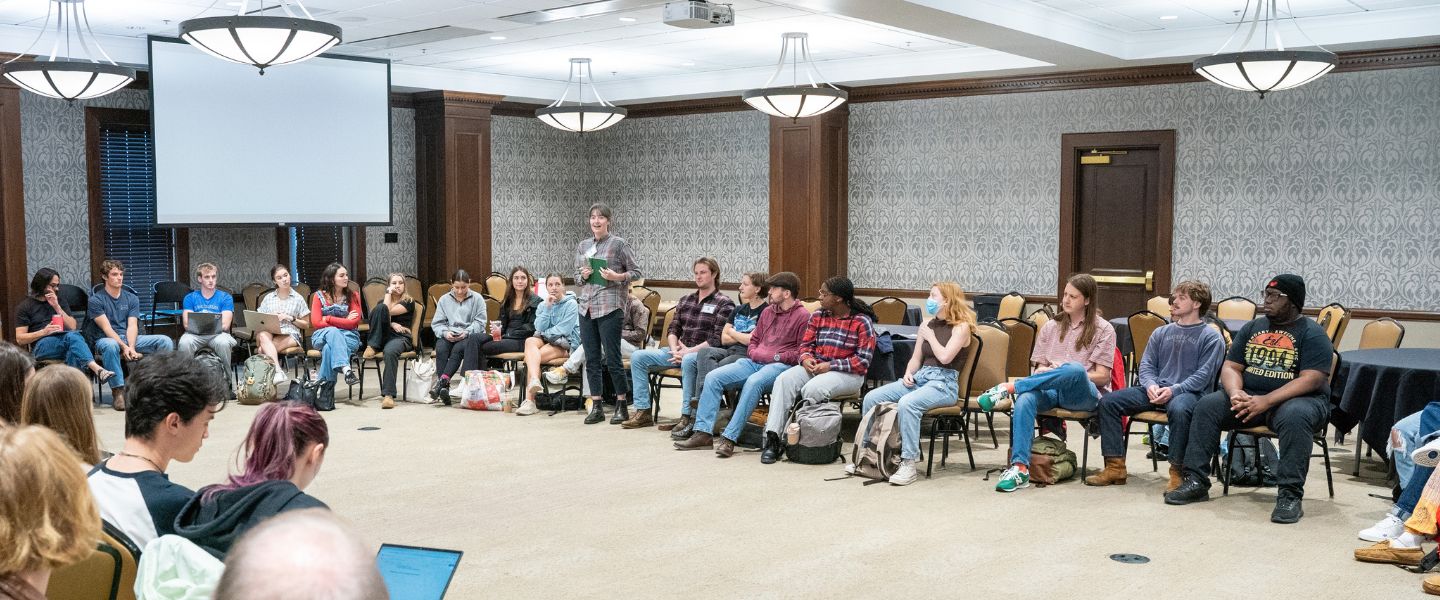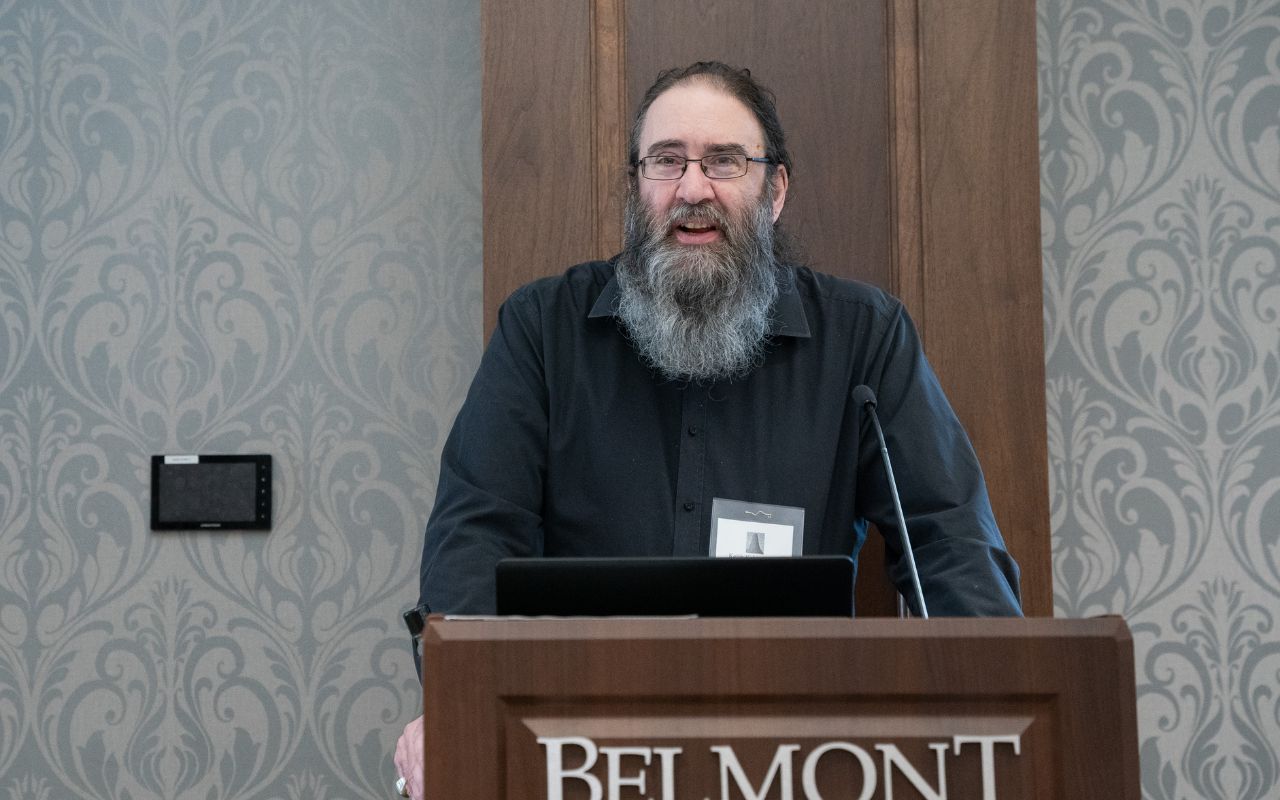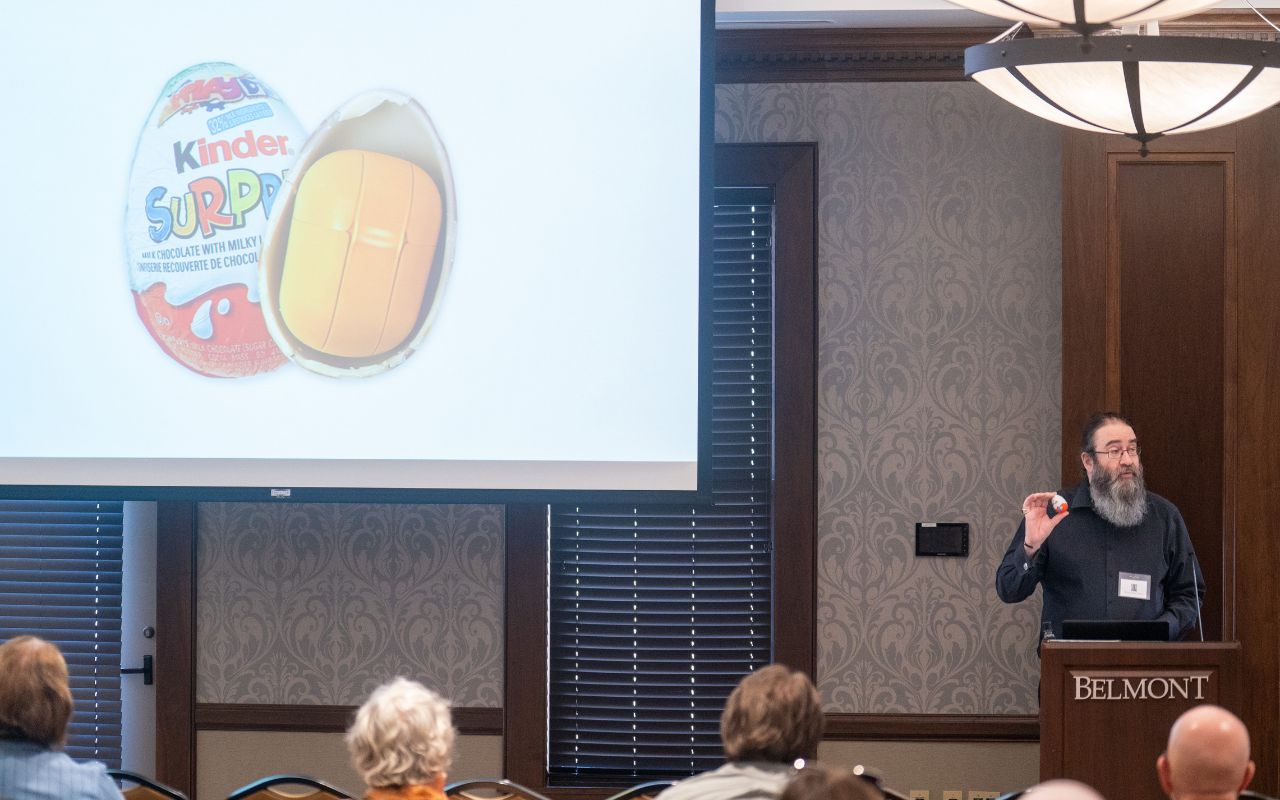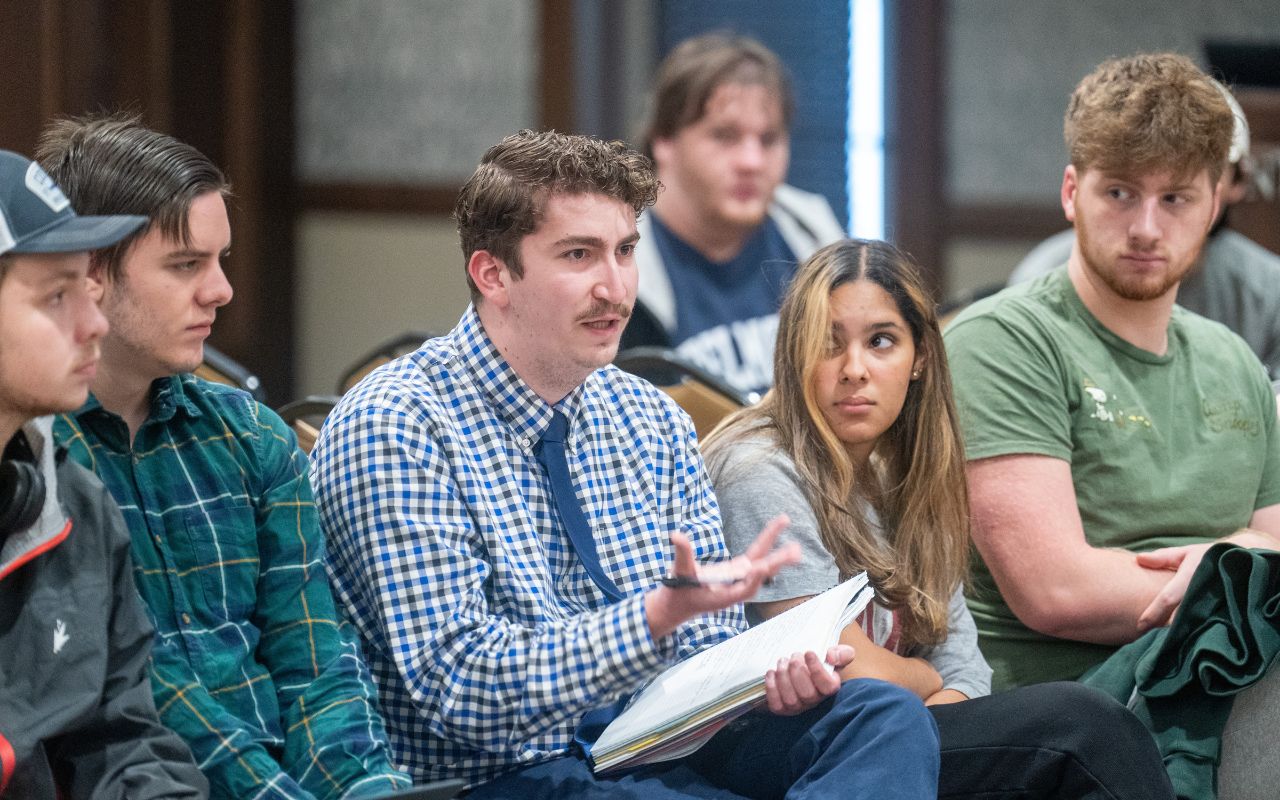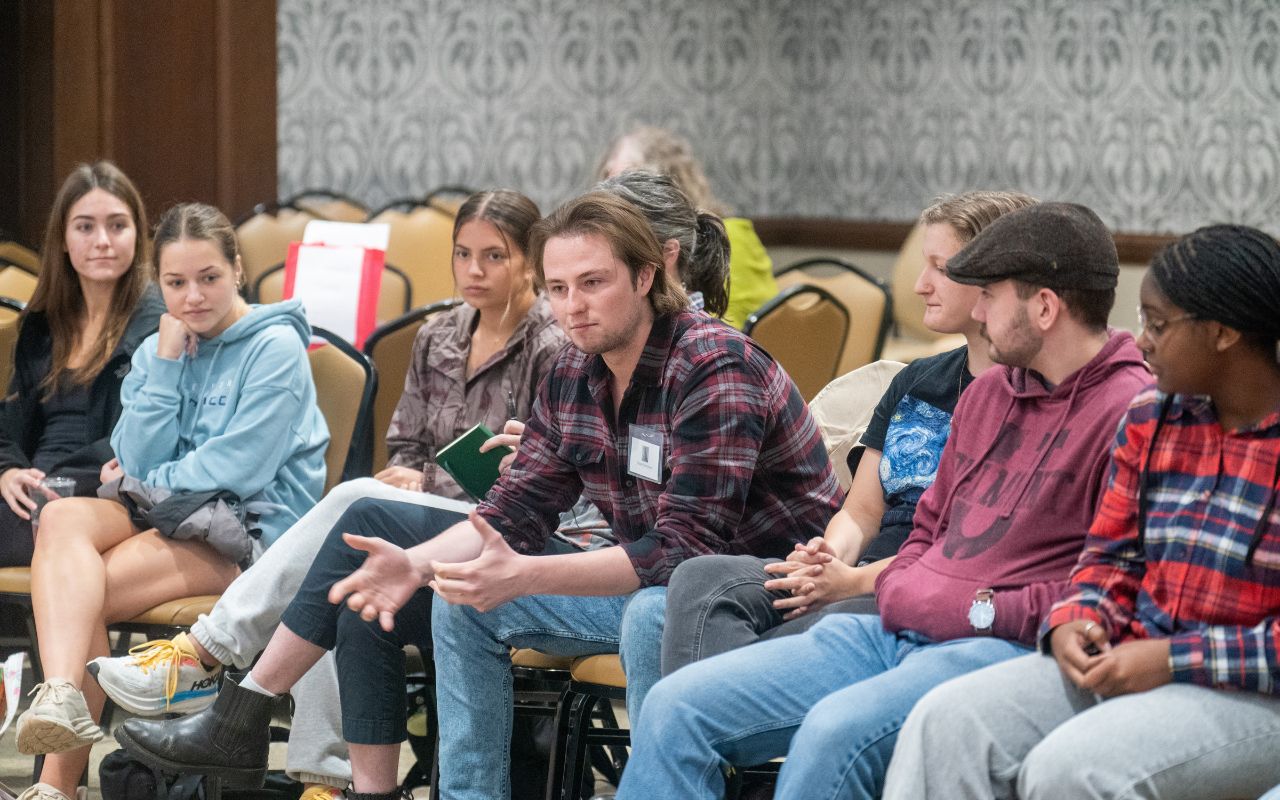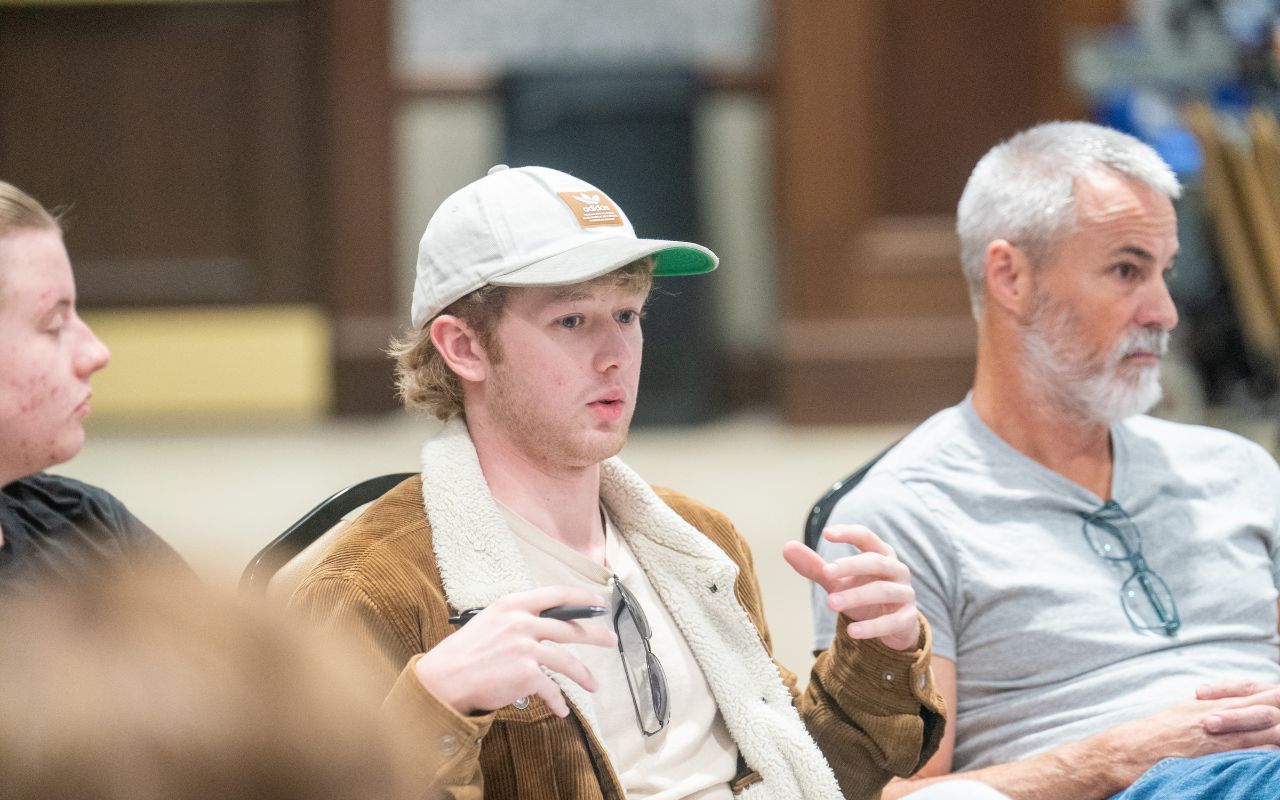Symposium addressed themes of language, what it means to be human
The College of Liberal Arts & Social Sciences recently concluded its 23rd annual Humanities Symposium, an intellectual week featuring panels, speakers, films, art and engaging conversations delving into the complexities of human interaction. This year's event, themed "Babel: Origins & Ends of Language," explored the profound impact of language on the human experience.
Key themes addressed at this year’s Symposium included:
- What is language?
- What is it about language that both ties us to and divides us from other living things?
- If our own creations were to master language, would we be any less human?
“Language lies at the heart of all three departments in the school of Humanities – English, Philosophy, and World Languages and Cultures,” said Dr. Maggie Monteverde, co-chair of the 2024 Humanities Symposium. “Whether or not language distinguishes us from other living things may be up for debate, but in its many forms, especially in its social and communicative function, it is undoubtedly a central aspect of being human.”
The Symposium featured 33 events over five days, covering a wide range of topics related to language and communication.
Connection Through Incomprehension
To kick off the Symposium, Dr. Keith Kahn-Harris of London’s Leo Baeck College discussed how language often results in more confusion than nonverbal communication.
While he might be fascinated with niche and complex jargon used in the Apollo space missions, Kahn-Harris used it as an example of how too many words often spark confusion and misunderstanding. However, humans have an ability to build close relationships and understanding with babies and pets, eliciting specific reactions and a mutual understanding of one another despite not sharing a language.
“What would the world look like if we paid attention to the overwhelming presence of written text?” he asked. “The potential of examining text depends not on understanding text, but on a deliberate comprehension that reveals the strangest mystery and wonder of the human use of language. By choosing not to understand and cultivating an intentional superficiality, we might be able to understand more deeply. It’s an absurd paradox, but one I think we should revel in.”
Kahn-Harris also discussed how font size, color or placement of language on a product can be manipulated in marketing and used Kinder Eggs as an example. Additionally, he spoke to the aesthetic beauty that written text exhibits and encouraged listeners to approach language with a playful attitude.
Do Not Fear the Unfamiliar
Another Symposium keynote speaker, Dr. Ekaputra Tupamahu, challenged America’s self-appointed title as a “melting pot” of different cultures in his presentation. He framed language as the primary colonial device of any nation and argued that as many in the United States use English as the primary tool for social and political conformity, there is a pressing need for America to increasingly welcome other languages.
Tupamahu’s research into the early church’s utilization of different languages stemmed from Acts’ “Great Commission” in which the disciples dispersed to share the gospel. This was not a single-language monolithic event, but rather a migrational movement that required the understanding of different languages, or speaking in tongues.
Tupamahu also contrasted the differing views on language held by Paul and Luke in the New Testament. While Paul emphasized the need for translation in church gatherings, Luke preached the importance of learning other languages to witness and show hospitality towards others.
“Language is more than a means of communication — it carries weight, distinct stories, life experiences and ways of seeing the world,” said Tupamahu. “The presence of diverse languages — people speaking in ways unfamiliar to us — is not something to be feared or resisted, but something beautiful and wonderfully created by our maker, a reflection of the richness and diversity of human experience.”
The question is this — can America become a hospitable place where many languages can exist and flourish?
ESL Speakers in Metro Nashville Public Schools
Speaking to the prevalence of students who speak English as a second language (ESL) in Nashville, Dr. Amanda Nelms of Belmont’s education faculty and education student Meagan Boots shared their experiences working with ESL students in Metro Nashville Public Schools (MNPS).
Nearly 24,000 students are active ELs (English learners), meaning their proficiency in English is limited and their parents reported a different language is primarily spoken at home. Nelms projected this number of students will increase by 15% by the end of the year.
The two discussed transforming public ESL programs from a deficit mindset to an asset mindset, encouraging students to be proud of their language, culture and family heritage while learning English, rather than continuously emphasizing what they do not know.
“As I envision my future classroom, I want to create safe spaces and opportunities for students to share their backgrounds and cultures,” said Boots. “They should be proud of where their families are from, and when those students are engaged, they are encouraged to take on leadership roles, they are encouraged to participate and feel a part of the classroom.”
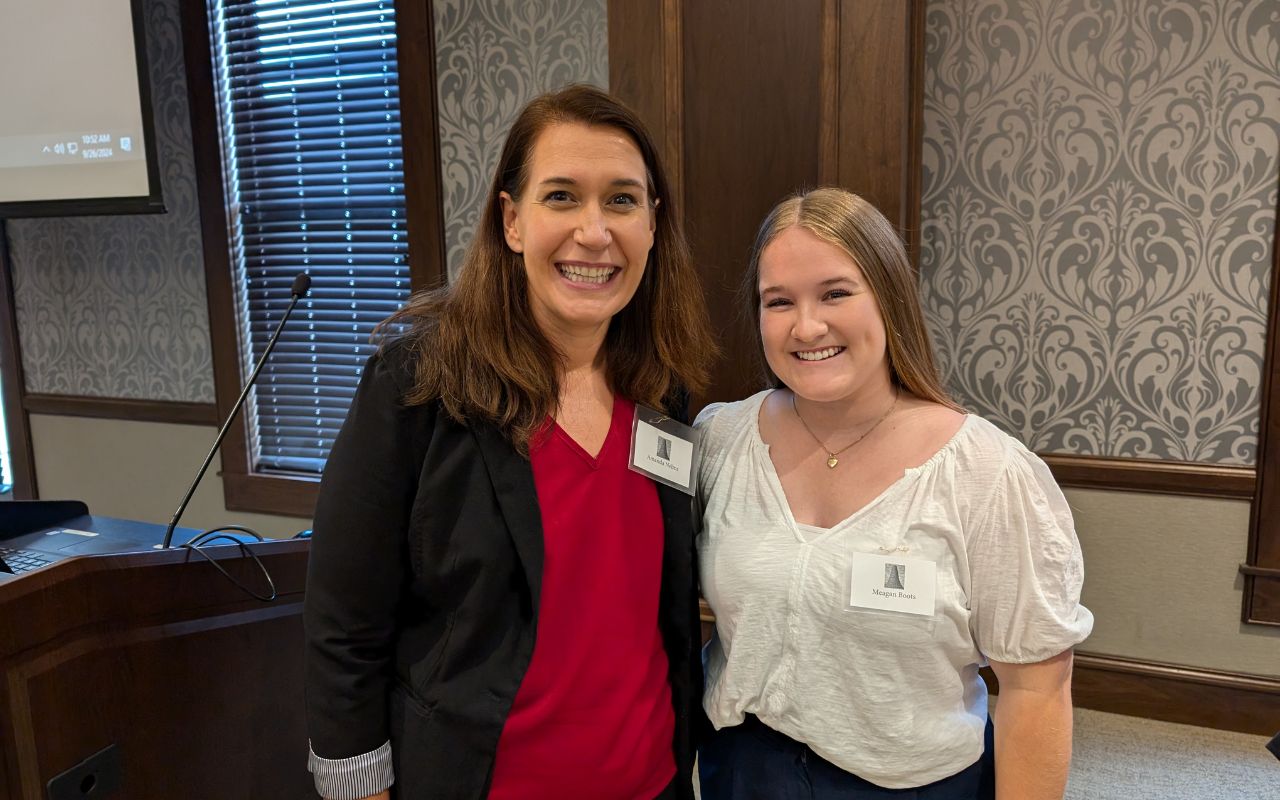
Additional Events
Additional Humanities Symposium events explored historical and Biblical themes, personal and societal use of language and cultural aspects of communication.
Three films were also screened as part of the Humanities Symposium:
- Fritz Lang’s “Metropolis”
- “A to Z: The First Alphabet” documentary
- “Through Deaf Eyes,” a PBS documentary exploring 200 years of deaf life in America.
On the final day, Belmont’s weekly philosophy student discussion group, Philologio, hosted an interactive open discussion in which members of the group posed questions regarding language to the rest of the group and audience, prompting a dialogue within the room.
Every session throughout the week underscored Monteverde's initial insight into language's centrality in human experience. The Humanities Symposium showcased how words not only communicate reality, but shape it. Ultimately, language stands as an innate human trait, eternally binding individuals even as it challenges them to navigate their initial differences.
Learn More
Learn more about the humanities at Belmont.

